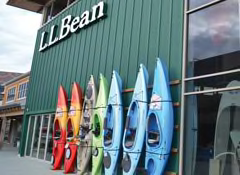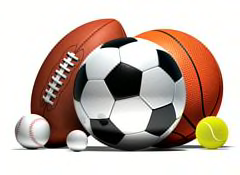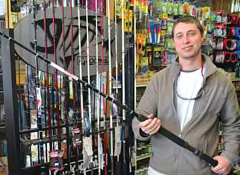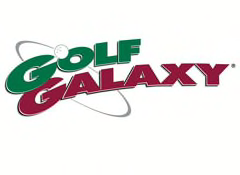Sign In


If you're like many shoppers, you buy sports apparel and equipment at Dick's Sporting Goods or Sports Authority, which have a total of about 1,000 stores nationwide. But by doing that, you're missing a chance to up your game—whether it's played on grass, snow, water, or asphalt.
In our first Ratings of sporting-goods retailers, 26,461 readers told us about 34,229 experiences buying treadmills, skis, and the like. Almost 30 percent of the transactions took place at Dick's and Sports Authority. But neither made readers as happy as did independent stores and pro shops, one-sport chains, or outdoorsy companies such as L.L.Bean and REI.
The merchants that pleased readers most offered value (the goods were worth their cost), wide selection, high-quality products, and solid service. Independent stores and pro shops were especially skilled at providing knowledgeable and solicitous service. "If you're investing $1,000 on a set of clubs, you want a personal connection with someone who knows what they're talking about," says Lee Diercks, a partner at the Clear Thinking Group, a business-strategy company. "Specialty shops exist because there are those consumers who value someone who can string a racket and make sure it's properly weighted, teach you how to shoot, and make sure you select the right ski boots."
Survey respondents who shopped at independents and pro shops took full advantage of the help available: 92 percent interacted with the sales staff. Only 43 percent of respondents who shopped at a mass merchant received help.
Among all-purpose retailers, Costco—a reader favorite in survey after survey for products as varied as eyeglasses and electronics—rated highly, mainly because of outstanding value and quality. Costco's drawbacks, common to warehouse clubs, are narrow selection and minimal service. Among the least likely to satisfy were Walmart, Kmart, and Sam's Club, all of which scored lower than most of the rated stores for service and ease of checkout.
The most common problem for sporting-goods shoppers was a limited choice of sizes. Overall, about one in four respondents had a complaint that wasn't related to service or selection, usually about cluttered aisles, long checkout lines, or hard-to-find price tags. Thirty-eight percent of those who shopped for sporting goods at JCPenney, Sears, Walmart, and other mainstream retailers had at least one problem, compared with 15 percent who shopped at outdoor chains and 11 percent who shopped at independents.
We limited our Ratings to walk-in stores because that's how most people buy sporting goods. Bruce Hammond, director of marketing and communications for the National Sporting Goods Association, a trade group, says that more than three-quarters of athletic equipment and shoes were bought at walk-in stores in 2011.
But if you know exactly what you want, buying online makes sense. Prices on the Web are frequently as much as 10 percent lower than in stores, in part because federal law doesn't require online retailers to collect state sales tax unless they have a physical location in that state.
If you don't know exactly what you want, websites give you lots to look at. Amazon offers many types of athletic equipment, including boxing gloves and ballet shoes, and has rated high in many Consumer Reports surveys. But most of the merchants in the Ratings offer more choices online than in their stores. Walmart's website, for instance, sells more than 1,400 fishing rods and reels; at a Walmart near our Yonkers, N.Y., headquarters, we spotted 100 or so.

The different types of sports stores satisfy different customer needs.
In our Ratings, these cover a wide range:
At the bigger sporting-goods specialists, bargains are a significant part of the appeal. Like any other major retailer, those chains woo customers with cheap prices and, once they're inside, tempt them with impulse items on end-aisle displays. "It's not just the skis," Diercks points out, "but the socks, the hats, the mittens, earmuffs, jackets, and hand warmers."
As a group, these stores, which equip customers for vigorous activities, ranked just behind independents and pro shops: 82 percent of readers who shopped at them were very or completely satisfied with the experience. When a product had to be returned, readers said, the process was especially smooth.
More than 90 percent of readers were highly pleased with the quality of the merchandise, which has a slightly different focus or specialty area depending on where you shop. Gander Mountain (113 stores, mostly in the Eastern U.S.) stocks 15 brands and almost 100 models of binoculars, for starters. REI and Eastern Mountain Sports (EMS) cater to people who camp, snowboard, cross-country ski, or snowshoe.
Promoting an outdoorsy lifestyle is as much a part of these stores as the merchandise. Cabela's (about 40 stores nationwide) has dozens of "pro staffers" who share their expertise online on subjects as diverse as dog training and bow hunting.
Forty-five percent of respondents who bought sporting goods at these stores said they went there mainly to buy something else. Mass merchants tend to concentrate on athletic activities that appeal to the widest audience: hunting, fishing, bicycling, camping, and team sports. Equipment and clothes are usually tailored to the region and the season. You'll usually find less product depth within categories at mass merchants than at the other rated retailers.
Each chain allocates space differently. During a trip to Costco, we saw just one brand and model of bicycle, one brand of tennis ball, and one brand of basketball. No treadmills were on the sales floor at a Target we visited, although the company's website offered about 20, for $107 to $2,100.
The chains generally showcase familiar brands with mass appeal. When they do carry higher-end names, the items might not be top of that line.
Survey respondents tended to criticize mass merchants for limited brands, sizes, and models and for long waits at checkout. About one-quarter of those surveyed couldn't find help when needed, and 20 percent were at least somewhat dissatisfied with the staff's product knowledge.
Bottom line. If you're serious about sports and want expert advice, lessons, or top-line merchandise, shop at an independent or pro shop or high-rated outdoor store. Sporting-goods chains are convenient, but many of the big names fell short in selection, quality, and service. Mass merchants are OK if you're not very picky and don't have many questions.

To gauge the shopping experience at different types of stores, we sent two reporters to look for fishing rods. They browsed anonymously.
A man immediately asks whether I need help. I say I'm looking for a saltwater fly rod for a friend. He leads me to an aisle bristling with rods, lures (from "grizzly minnow" to "crazy Charlie"), and other equipment. The rods include aficionado brands such as Redington, G.Loomis, and Sage. The staffer says prices range widely but that I can get a fine rod for about $150. He says my friend, an experienced angler, will need two rods for bonefish and tarpon, which require different gear. Why choose his store? He cites the staff's experience and knowledge of regional waters. The owner has skippered charter boats for more than 35 years.
I lose count at about 350 rods and rod-and-reel combos. Rods range from cheap bamboo sticks to poles seemingly big enough to land Jaws. Most cost less than $200. Big brands plus niche rods and many bottles of fish "aphrodisiac" are available. Fly-fishing is a weak link. I ask a salesman how to narrow the options. "Where do you plan to fish?" he asks, and explains differences in rod weight. He suggests a rod and spin-cast reel starter kit for $40 to $50.
The small angling section is devoted mostly to fly-fishing. There are 14 Bean-branded rods at $209 to $465 and a spin/fly kit. I ask a clerk what type of rod I need as a beginner. "Depends on the species of fish and the water," he says, suggesting the starter kit. He explains differences in line, rod, and reel, but when my questions become specific, he jokes that most of the fish he encounters come out of his freezer and directs me to a nearby competitor. "Orvis is a great resource because they specialize in fly-fishing," he says.
A smallish fishing section in this huge store has kits from $10 to $50, including a Barbie model. I count about 80 rods, priced from $8 to $140. A trash can is also filled with discontinued rods, plus a handful of ice-fishing poles. I don't spot fly-fishing gear. Although I roam the aisle and take notes for almost half an hour, I never encounter a salesperson.

Almost 20 percent of the 34,229 shopping experiences readers told us about involved the purchase of golf clubs and accessories. Three golf specialty chains—Edwin Watts Golf Shop, Golf Galaxy, and Golfsmith—earned impressive marks for value, selection, service, quality, and checkout ease.
Edwin Watts has about 90 retail locations, a mail-order division, and a website that displays more than 1,000 products and images from more than 75 manufacturers. The chain offers repair services and lessons to customers of all skill levels.
Golf Galaxy, which has 81 stores nationwide, sells a wide selection of equipment, apparel, and accessories from high-end names including Adidas, Ashworth, Callaway Golf, Cleveland, Cobra, FootJoy, Greg Norman, Nike Golf, Ping, TaylorMade, and Titleist. It also sells preowned clubs and offers club trade-ins good toward a new club. Golf Galaxy has on-staff PGA and LPGA pros for lessons and video swing analysis. The chain specializes in club fitting and repairs. Each store has putting greens, driving bays, and electronic simulators that let players see what it's like to play world-famous courses.
Golfsmith scored slightly lower than Edwin Watts and Golf Galaxy for selection and service. Primarily a catalog business before 1992, Golfsmith currently operates more than 90 stores nationwide. It specializes in custom club design and runs a PGA-accredited club-making school.
A version of this article appeared in the June 2013 issue of Consumer Reports magazine with the headline "Which Sports Stores Earn High Scores?"
 Build & Buy Car Buying Service
Build & Buy Car Buying Service
Save thousands off MSRP with upfront dealer pricing information and a transparent car buying experience.
 Get Ratings on the go and compare
Get Ratings on the go and compare
while you shop